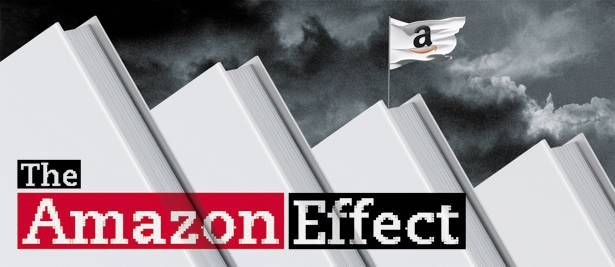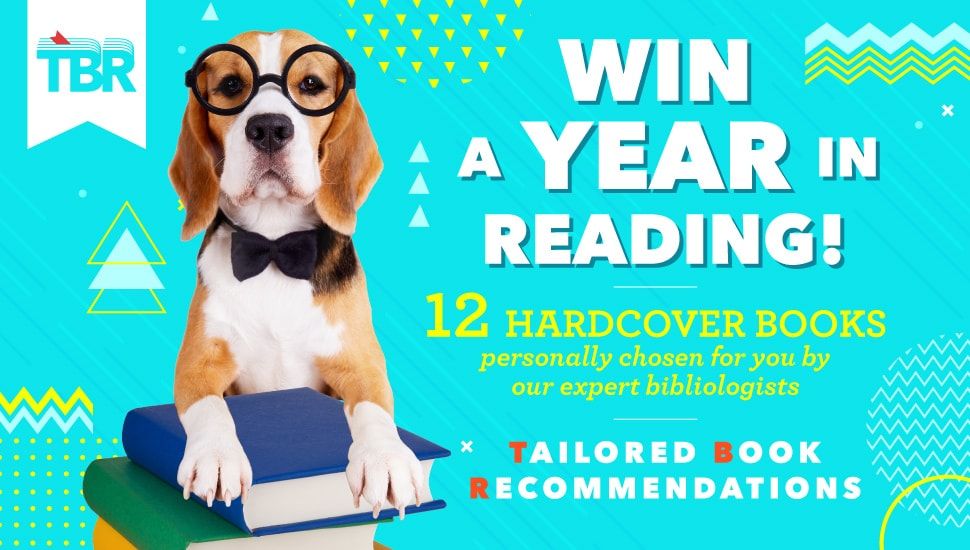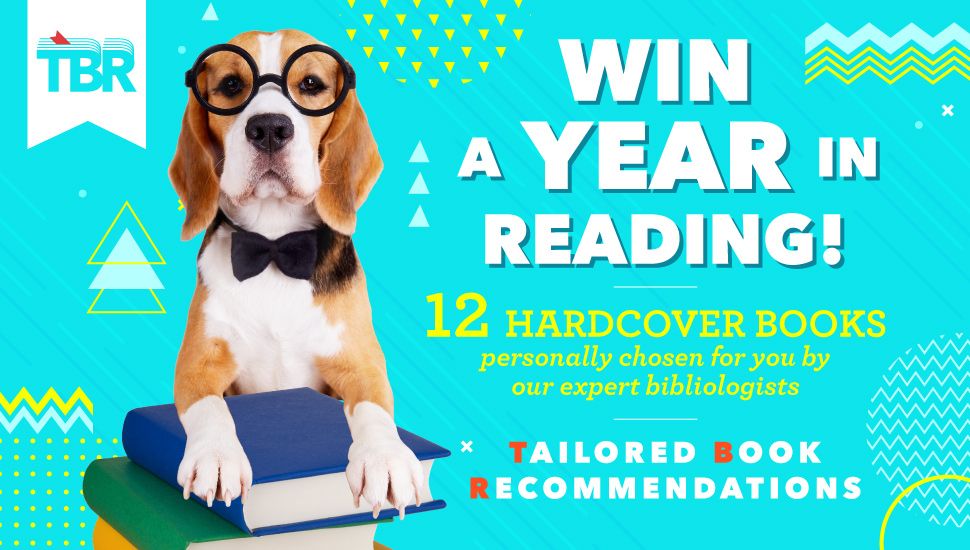
Breaking Down “The Amazon Effect”
In the current edition of The Nation, Steve Wasserman has a wide-ranging article on Amazon and its relationship with the publishing industry called “The Amazon Effect.” For those interested in the present state and future course of the publishing industry, it is a must-read. There is much for both Amazon fans and Amazon opponents to wield, but the piece is probably most interesting for those of us somewhere in the middle.
There’s much to be said about it, so I am going to pull out some of meatier bits and talk about them. Here we go.
____________________________
1. In 1994, four years after the first Internet browser was created, Bezos stumbled upon a startling statistic: the Internet had been growing at the rate of 2,300 percent annually. In 1995, the year Bezos, then 31, started Amazon, just 16 million people used the Internet. A year later, the number was 36 million, a figure that would multiply at a furious rate. Today, more than 1.7 billion people, or almost one out of every four humans on the planet, are online.
It very well may be that the internet is the fastest growing thing ever to have existed in human culture. Amazon is definitely a company with a specific identity, but suggesting that Amazon, and not the internet, is responsible for the changes we are seeing in reading is myopic. If Jeff Bezos never existed, there would be someone doing what Amazon is doing–whether things would be better or worse for it is impossible to say.
2. “Books are incredibly unusual in one respect,” Bezos said, “and that is that there are more items in the book category than there are items in any other category by far.”
With such an enormous inventory, books were ripe for a technological intervention. Amazon’s data collection allows it to sort information from all books, though relatively shallowly. A good bookseller can provide deeper information, but on only a small slice of books. The difference here might be enough that both services can coexist.
3. He was not warm…. It was like he could be a Martian for all I knew. A well-meaning, nice Martian.
This description of Bezos captures something of my observations of his public persona. He doesn’t seem to be a robber baron or even just a sort of bad guy. He just doesn’t seem to get how other people might think and feel. This probably has something to do with his success at systems and process, but also with the animosity some feel toward him that goes beyond what one might reasonably feel for a business competitor.
4. “A civilization without retail bookstores is unimaginable. Like shrines and other sacred meeting places, bookstores are essential artifacts of human nature. The feel of a book taken from the shelf and held in the hand is a magical experience, linking writer to reader.”
In 1931, there were 500 bookstores in America. Today, there are more than 1900. The retail bookstore is a recent phenomenon, and this sort of romantic thinking gets in the way of understanding what is happening to reading, for both good and ill.
5. The bookstore wars are over. Independents are battered, Borders is dead, Barnes & Noble weakened but still standing and Amazon triumphant. Yet still there is no peace; a new war rages for the future of publishing.
Digital technology is going to reshape every part of the reading process. Publishing is at the plate now. You know who is left after publishing? Amazon itself. In its drive to simplify the relationship between author and reader, I think it could well bring about its own obsolescence. If Amazon succeeds in getting people used to the idea of buying stuff to read “directly,” then Amazon itself could become unnecessary.
6. How the Digital Age might alter attention spans and perhaps even how we tell one another stories is a subject of considerable angst. The history of writing, however, gives us every reason to be confident that new forms of literary excellence will emerge, every bit as rigorous, pleasurable and enduring as the vaunted forms of yesteryear.
There is a good chance that every amazing, canonical writer or genre you’ve heard of was decried as destroying books and literature. And that’s because they did “destroy” it, only to reshape it into ever more interesting and varied forms.
7. “The resistance today by publishers to the onrushing digital future does not arise from fear of disruptive literacy, but from the understandable fear of their own obsolescence and the complexity of the digital transformation that awaits them, one in which much of their traditional infrastructure and perhaps they too will be redundant.”
“Publishing” does not equal “reading.” Beware any doom-predictors whose paycheck is threatened by said doom or any sunshine futurists who stand to gain from a new world order.
8. More worrisome, at least over the long term, is the success of Amazon’s Kindle Single program, an effort to encourage writers to make an end run around publishers, not only of books but of magazines as well.
I’m watching this. Very, very closely.
9. It gets worse: according to the New York Times, “five of the six major publishers either refuse to make new e-books available to libraries or have pulled back significantly over the last year on how easily or how often those books can be circulated.
Let’s not forget that the big six publishers are also giant companies that do the kinds of things that giant companies do.
10.“Monopolies are always problematic in a free society, and they are more so when we are dealing with the dissemination of ideas, which is what book publishing is about”
One way giant companies try to get you to forget that they are giant companies is to append their business models to things with which you have an emotional connection. The internet is the most powerful idea disseminator of all time. Everything else that currently exists to disseminate ideas now is minor compared to it.
11. I grew up in a world in which many parts together formed a community adversarial in a microcosmic way but communal in a larger sense: authors, editors, agents, publishers, wholesalers, retailers and readers. I hope, worried as I am about the current trajectory [of publishing], that we do not look back one day, sitting on a stump as the boy does in Shel Silverstein’s The Giving Tree, and only see what has become a largely denuded wasteland.”
First, see my comment on #10. Second, see my comment on #7. Third, notice how that list is structured, beginning with authors and ending with readers. The squeeze that is happening today is for all those professions in the middle. There are many open questions, but the reality is that none of the likely answers point to a denuded wasteland. The “worst case” scenario is that only authors and readers remain. I’m not sure if that’s the apocalypse I want, but I think it is one I can live with.














